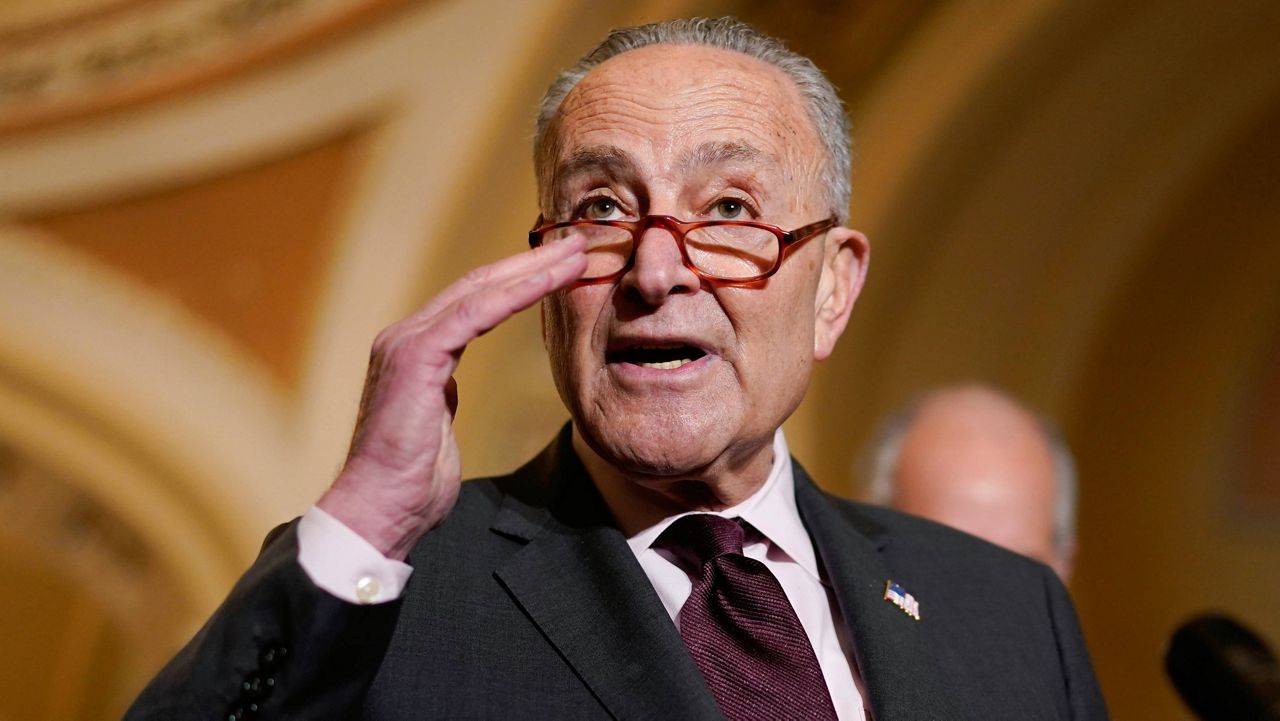President Joe Biden signed a $2.5 trillion increase to the debt ceiling into law on Thursday, officially preventing the country from defaulting on its obligations for the first time in its history and averting a possible economic disaster with potential global ramifications.
Congress voted to raise the debt limit early Wednesday – hours before the Treasury Department's Dec. 15 deadline.
“The full faith and credit of the United States should never be questioned," House Speaker Nancy Pelosi, D-Calif., said on the floor of the House before the vote.
The bill passed the House in a 221-209 early Wednesday, with just Illinois Rep. Adam Kinzinger joining every House Democrat to support the measure. On Tuesday, the Senate passed the bill in a 50-49 vote along party lines.
Treasury Secretary Janet Yellen has previously warned that the debt limit could be reached by Dec. 15 and the government would no longer be able to act on its obligations, and that a default could result in “catastrophic” consequences for both the U.S. and the global economy, as well as stock markets.
The debt limit was increased by $2.5 trillion "to a level commensurate with funding necessary to get into 2023," Senate Majority Leader Chuck Schumer said Tuesday.
Leaders in both parties urged Congress to address the debt limit in a bipartisan fashion, but Republicans have also insisted that Democrats in the majority go it alone and take responsibility for raising the debt ceiling.
In October, Republicans previously joined Democrats on a short-term increase to increase the debt limit in October, kicking the can down the road to December, but warned they would not offer their aid to do so again.
Republicans urged Democrats to use the budget reconciliation process to pass an increase to the debt limit with a simple majority vote, but Democrats refused, saying the process could be cumbersome and pushed for a bipartisan agreement.
Last week, the House and Senate approved a measure that would temporarily allow lawmakers to fast track an increase to the debt limit with a simple majority — rather than the 60 votes needed to overcome the Senate’s 60-vote filibuster threshold — clearing the way for all 50 Senate Democrats to vote to raise the debt limit, with Vice President Kamala Harris breaking the deadlock.
The agreement was the result of negotiations between Senate Majority Leader Chuck Schumer, D-N.Y., and Senate Minority Leader Mitch McConnell, R-Ky. — the accord between the two leaders enjoyed bipartisan support in the Senate.
“Last week, we advanced bipartisan legislation that will enable this chamber to address the debt ceiling on a fast-track basis,” Schumer said Monday. “The Senate will act tomorrow to prevent default.”
McConnell said last week that averting a fiscal crisis is "in the best interest of the country" and "in the best interest of Republicans."
But several Republicans were furious about the agreement and accused McConnell of caving to Democrats.
“What I’m worried about is that for four months the Republican Senate said we would not lift a finger to help the Democrats raise the debt ceiling, we would make them use reconciliation,” South Carolina Sen. Lindsey Graham, a staunch ally of former President Donald Trump, said on Fox News on Sunday.
“At the end, we did not make them use reconciliation, which changed the rules of the Senate in a House bill. I don’t like that a lot,” Graham continued. "What we did is promised one thing and delivered another.”
Trump, for his part, slammed McConnell in a statement last week: “Mitch McConnell, the Broken Old Crow, has just conceded, for absolutely nothing and for no reason, the powerful Debt Ceiling negotiating block, which was the Republicans’ first-class ticket for victory over the Democrats.”
The measure is expected to raise the debt limit to a point where it will not need to be addressed again until after the 2022 midterm elections.
The opposition to the debt limit will likely portend Republicans' 2022 midterm strategy of accusing Democrats of racking up trillions in debt, despite the fact that the more than $29 trillion national debt was incurred by leaders of both parties – including a rise of roughly $7.8 trillion under former President Trump's single White House term alone.



